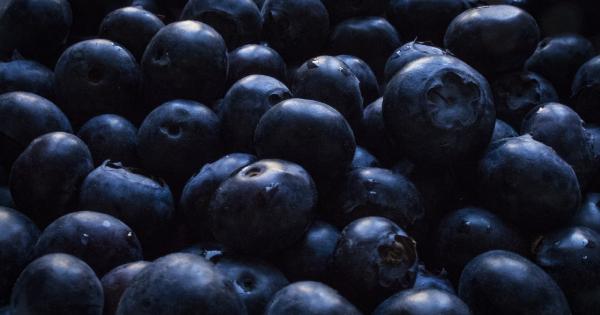Kiwifruit, commonly known as “kiwi”, is a nutrient-packed fruit with a tangy taste that is enjoyed all over the world.
Besides its delicious taste, kiwi is an excellent source of vitamins, minerals, and antioxidants that are beneficial for our health. In this article, we will discuss the nutritional value of kiwi, its calorie content, and the health benefits of consuming kiwi fruit.
Calories in Kiwi
One medium-sized kiwi fruit (about 2.5 inches in diameter) contains approximately 61 calories. This calorie count puts kiwi in the category of low-calorie fruits, which makes it a perfect snack for those watching their weight.
The calorie content of kiwi is primarily from carbohydrates, with a small amount of protein and fat.
Vitamins and Minerals in Kiwi
Kiwifruit contains an impressive array of essential vitamins and minerals that are vital for maintaining good health. One medium-sized kiwi provides:.
- Vitamin C: 85% of daily recommended intake (DRI)
- Vitamin K: 28% of DRI
- Vitamin E: 6% of DRI
- Potassium: 6% of DRI
- Folate: 6% of DRI
- Copper: 7% of DRI
- Fiber: 2 grams
These vitamins and minerals help to support various bodily functions, such as boosting the immune system, regulating blood pressure, and promoting healthy digestion.
Antioxidants in Kiwi
Kiwi also contains a range of powerful antioxidants that help protect the body against free radical damage. These antioxidants include:.
- Vitamin C
- Vitamin E
- Phytonutrients (like lutein and zeaxanthin)
- Flavonoids (like quercetin)
These antioxidants help prevent oxidative stress, which can lead to the development of chronic diseases such as heart disease, cancer, and neurodegenerative disorders.
Health Benefits of Kiwi
Consuming kiwi fruit can offer a range of health benefits, including:.
1. Improved Digestion
Kiwi fruit contains a digestive enzyme called actinidin that helps the body break down protein. This enzyme can help improve digestion, reduce bloating, and alleviate constipation.
2. Boosted Immune System
Kiwi is a rich source of vitamin C, which is necessary for immune function. Consuming kiwi can help boost the immune system, reducing the risk of infections and illnesses.
3. Lowered Blood Pressure
Kiwi fruit is a good source of potassium, which can help lower blood pressure. Regular consumption of kiwi can help reduce the risk of heart disease and stroke.
4. Improved Skin Health
The antioxidants in kiwi fruit, such as vitamin C and vitamin E, can help improve skin health by protecting against UV damage and reducing the appearance of fine lines and wrinkles.
5. Improved Sleep Quality
Kiwi fruit contains a compound called serotonin, which can help improve sleep quality and reduce the time it takes to fall asleep.
6. Reduced Inflammation
The anti-inflammatory properties of kiwi fruit can help reduce inflammation in the body, which can lead to a range of chronic diseases and health problems.
7. Improved Eye Health
Kiwi fruit contains lutein and zeaxanthin, which are essential for maintaining good eye health. These antioxidants can help protect the eyes against age-related macular degeneration and other eye diseases.
How to Incorporate Kiwi into Your Diet
Kiwi fruit is a versatile fruit that can be enjoyed in a variety of ways, such as:.
- Sliced and added to a fruit salad
- Blended into smoothies
- Cut into wedges and eaten as a snack
- Sliced and added to yogurt or oatmeal
Kiwi can also be used as an ingredient in savory dishes, such as salads or salsas.
Cautions and Considerations
While kiwi fruit is generally safe to consume, there are a few things to keep in mind:.
- Some people may be allergic to kiwi. Symptoms of an allergic reaction can range from mild to severe and can include itching, swelling, and difficulty breathing. If you are allergic to kiwi or suspect that you may be, it’s essential to avoid consuming the fruit.
- Kiwi fruit contains high levels of oxalates, which can contribute to the formation of kidney stones in some people. If you have a history of kidney stones, it’s best to speak with your doctor before consuming kiwi fruit.
Conclusion
Kiwi fruit is a delicious and nutritious fruit that can offer a range of health benefits. It is a low-calorie fruit that is high in vitamins, minerals, and antioxidants.
Regular consumption of kiwi can help improve digestion, boost the immune system, lower blood pressure, improve skin health, and reduce inflammation. With its tangy taste and versatility, kiwi is an excellent addition to any healthy diet.






























